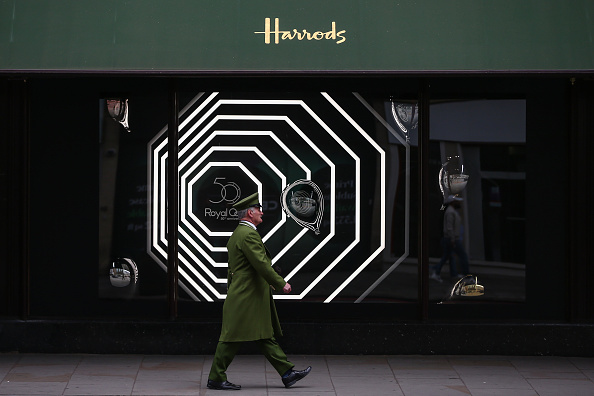Love it or loathe it, VAT free shopping only makes our tax system even more unwieldy

If you want to give luxury stores a leg up at the expense of local businesses and create an even more complicated tax system – VAT free shopping is for you, writes Ben Ramanauskas.
One of the tax changes set out in Kwasi Kwarteng’s now infamous mini-budget was the return of VAT free shopping for tourists visiting the UK. The policy was overshadowed by some of the other tax cuts and was eventually scrapped by Jeremy Hunt in his emergency fiscal statement. Although scrapping VAT for tourists is popular with business leaders, and the Mayor of London, Hunt was right to do what he did.
First of all, it would have been incredibly costly for the government to go ahead with the policy. It would mean the Treasury losing out on approximately £2bn in revenue. While the Truss-Kwarteng team claimed that such a move would boost profits for firms and so actually increase tax receipts, given that there was no accompanying OBR forecast meant that we had to take this claim on faith. £2bn is a significant chunk of money, roughly the same cost to the public finances as the cut to the top rate of income tax. We have already seen the impact of abolishing VAT on certain goods relatively recently. For example, VAT on ebooks was abolished in 2020 due to lobbying from the publishing industry. The publishers didn’t pass the savings on to consumers and the Treasury missed out on £200m.
The main beneficiaries would be luxury brands and department stores. It’s difficult to argue that the government should forgo £2bn in order to help boost the profits of Harrods and Burberry, but not local stores who will struggle the most with rising costs.
We need only look to the words of Michael Ward, the managing director of Harrods, to prove this point. He was confident the store would prosper in a recession because, in a downturn, “the rich get richer”.
The biggest issue with Kwarteng’s policy was that it would bring even more complexity to the VAT system. As far as taxes go, VAT is a pretty good one. It’s an effective revenue raiser without distorting economic activity.
But it’s not as good as it could be as a result of a variety of different rates and exemptions, many of which make very little sense. Most people have heard of the Jaffa Cake case where McVitie’s very expensive lawyers went to great length – including baking a giant Jaffa Cake – to help demonstrate the cake-like qualities of the chocolate orangey sponges. Their reason? Well, chocolate covered cakes are considered a staple and so are zero rated whereas chocolate biscuits attract the higher rate of 20 per cent. It doesn’t stop there. Fancy buying some chocolate buttons to munch on as an afternoon treat? Then you better be prepared to pay the full rate of VAT. However, if you go to the baking aisle in the same supermarket then you can get them much cheaper as they are zero rated. These are just two of countless examples of different rates and exemptions being levied for spurious reasons.
Rather than adding extra complexity to VAT we should simplify it. Jeremy Hunt doesn’t have a huge amount of cash to play with in next week’s budget, but that doesn’t mean he can’t be bold. There are options like scrapping the different rates and exemptions to introduce a single rate of VAT on all goods and services. This should obviously be set at a lower rate so as not to exacerbate the cost of living crisis. It would be politically unpopular, but it could be spun as a tax cut in order to appease the Tory backbenchers. A single VAT rate would also be much easier for businesses to comply with, thereby cutting costs and providing the environment to drive prices down.
Perhaps the most important thing is that it would bring in a lot more money for the Treasury. Scrapping the different rates and exemptions and levying a single rate at 17.5 per cent would raise approximately £24 billion each year. That’s a lot of nurses, teachers, and military equipment and will allow the government to provide more targeted support for households and businesses that are struggling.
We shouldn’t have tax policy set by lobby groups to serve vested interests. Instead the government should implement a rational tax policy firmly rooted in economic reality which raises revenue to fund essential services while also incentivising investment.
